Objectives
The wider objective of KEY project is to strengthen the role of teacher training HEIs in continuous preschool professional development (CPD) system in Serbia and in Montenegro.
The wider objective sets the ground for preschool teaching HEIs to influence the creation of and promote CPD for preschool teachers and professionals vis-a-vis local communities. In doing so the project addresses the existing gaps between the ECEC related educational outcomes and actual labor market needs while at the same time it increases capacities of local governments to exercise their roles in ECEC education and approach EU funding opportunities.
In order to achieve the wider objective and transform the situation explained in Section E, different project teams are engaged to accomplish each of the project-specific objectives as follows:
- To establish the ECEC learning hubs within participating HEIs in Serbia and Montenegro
The accomplished project specific objective 1 broadens and modernizes the existing preschool teachers training offer, makes it more selective and better linked with expected competences framework and professional/practitioners requirements. It introduces the much needed systemic approach to defying the needs and offer for preschool teachers CPD with proactive engagement of all relevant stakeholders in life-long process of learning. - To build the capacity across the CPD sector for monitoring, evaluation and quality assurance The accomplished project specific objective 2 contributes to identifying parameters for practical use of knowledge gained through preschool teachers training programs. This benchmarking system further enables quality monitoring mechanism and the successful formative evaluation practices to be developed and implemented for measuring CPD effectiveness and impact. CPD model of standards for accreditation streamlines sustained efforts to upgrading of ECEC teachers and professionals CPD practices; builds confidence of key stakeholders in its quality, and motivates preschool teachers and professionals to plan their own professional development.
Work packages
WORK PACKAGE 1: INCEPTION
Coordinator: University of Montenegro (ME)
Description: This WP is about the preparation of smooth start of the project implementation. It will begin with comparative review od CDP systems (activity 1.1) in participating countries (RS, ME, SI, UK, RO, HU) in order to identify similarities and differences in CPD systems. This activity will be supported by presentations of ECEC CPD institutions in EU partner countries that will be prepared by EU partner Universities in order to support better understanding of different models of these centers across Europe. Another important preparatory activity is the creation of Project implementation manual (1.2) containing practical guidelines for activity implementation, finance management and project quality instructions.
In parallel with comparative analysis, the consortium will be working on position paper on ECEC CPD (1.3) which will stress the need for change in CPD paradigm. The paper will be presented at Introduction conference (1.5) to key stakeholders in Serbia and Montenegro. Introduction conference will be hosted by the University of Montenegro in Podgorica and will bring more than 80 stakeholders and media representatives to raise the issue of CPD in ECEC, present the comparative survey findings and position paper. This activity will be an introduction of the creation of ECEC Learning Hubs (WP.2), creation of innovative CPD courses (WP.3), capacity building for QA in CPD (WP.4) and creation of a model of CPD accreditation standards (WP.4).
Preparatory activity that will lay down foundations for greater project impact is forming of the Project Advisory Board (1.4). Each partner in Serbia and Montenegro will meet with available local, regional and national stakeholders and will negotiate their involvement in monitoring the project implementation.
Activities:
1.1. Comparative analysis of ECEC CPD in RS,ME,RO,SI,HU&UK
1.2. Preparing of project implementation, finance management and project quality instructions
1.3. Preparing of position paper on ECEC CPD
1.4. Constitution of project Advisory Board
1.5. Introduction conference
WORK PACKAGE 2: ESTABLISHING OF ECEC LEARNING HUBS
Coordinator: PRESCHOOL TEACHER TRAINING COLLEGE MIHAILO PALOV IN VRSAC (RS)
Description: This WP is about the establishment of ECEC Learning Hubs as new organizational units of 6 partner HEIs that will be responsible for planning and organizing ECEC CPD activities for preschool teachers, associates and practitioners working in the field of ECEC. This WP will be jointly coordinated by University of Maribor and RIS from Murska Subota. The WP will start with a seminar on strengthening the role of HEIs in ECEC CPD (2.1), which should raise awareness of academic staff about their role in the provision of high-quality CPD for preschool teachers. Upon the completion of this seminar, each HEI will constitute the internal team consisting of teachers and administrative and technical staff (legal and financial officers, project managers), that will work on the development of concept of ECEC Learning Hub (2.2). Within this activity, 2 workshops will be organized (WS.1 in Murska Sobota and WS.2 in Vrsac) and facilitated towards the creation of a solid establishing framework for each participating HEI. During this process, internal teams will be working on preparation of founding documents including:
a) ECEC Learning Hub Founding Framework
b) Draft Decision on the Establishment of ECEC Learning Hub
c) Rules of Procedure
d) Plan of work with financial plan
e) ToR for administrative
These documents upon completion will be adopted by the HEI governing bodies and ECEC Learning Hubs will this way be formally established within each of 6 participating HEIs.
In parallel with preparation of founding documents, HEIs will be working on the provision of appropriate room to accommodate the ECEC Learning Hub, provision of inventory and appointment of administrative staff, at least one person that will be responsible for administrating the operation of the Hub (2.3). ECEC Learning Hubs will be equipped with necessary (non)technical equipment that will be used for CPD (2.4). Equipment will be procured through the joint tendering procedure that will be coordinated by the lead partner with full participation of other partner HEIs benefiting from this procurement.
The process of establishment of the ECEC Learning Hubs and work facilitated by EU partner Universities will be used as an appropriate framework to upgrade and innovate institutions CPD strategies (2.5). This will be carried out gradually by assessing the needs of (non)academic staff, consultations with EU partner Universities and peer reviewing with other WB partner HEIs participating in this process.
Activities:
2.1. Seminar on strengthening the role of HEIs in ECEC CPD
2.2. Development of ECEC Learning Hubs
2.3. Provision of space, inventory and administrative staff
2.4. Purchasing of equipment
2.5. Revising and upgrading of CPD strategies of PC HEIs
WORK PACKAGE 3: INTRODUCTION OF ECEC CPD COURSES IN MOODLE
Coordinator: PRESCHOOL TEACHER TRAINING COLLEGE KRUSEVAC (RS)
Description: This WP focuses on the creation of innovative ECEC CPD courses for preschool teachers, associates and practitioners. These CPD courses will be innovative and will combine traditional and ICT-based methodologies and approaches. The WP will start with a training seminar on Moodle courses (2.1) that will be prepared and delivered by experienced Moodle users from the University of Maribor. It will continue with the creation of 24 courses and crash courses (2.2), out of which min 50% will be in Moodle. This task will be supported and supervised by EU partner Universities. Creation of courses will be followed by their accreditation (3.3) with the CPD regulatory bodies in Serbia and Montenegro. Finally, the courses will be offered to local preschool teachers, associates and practitioners in Serbia and Montenegro through local training sessions (3.4) that will be prepared and delivered by Serbian and Montenegrin HEI teaching staff.
This work package will start in the second year, after the establishment of ECEC Learning Hubs. Courses will be created by the end of the second year and accredited, and implementation of the courses in the communities will take place throughout the third project year.
Activities:
3.1. Seminar on Moodle courses
3.2. Development of CPD courses, crash courses and materials
3.3. Accreditation of CPD courses
3.4. Implementation of courses in the local communities
WORK PACKAGE 4: QA CAPACITY BUILDING IN CPD
Coordinator: THE BIRMINGHAM CITY UNIVERSITY (UK)
Description: This WP focuses on the improvement of teaching staff skills and competences in the provision of CDP quality through monitoring and evaluation, as well as their ability to train adults and work in diverse societal and working environments. The WP will start with the training of trainers on monitoring and evaluation (M&E) that will be prepared and delivered by The Birmingham City University QA experts in (4.1) and attended by WB HEI teaching staff. The first session will be held in Novi Sad and second in Podgorica. At these 2 ToT sessions, min. 24 teachers from 6 partner HEIs from Serbia and Montenegro will be prepared to independently deliver training on M&E and QA in CDP to preschool practitioners and professional staff of CPD regulatory bodies in Serbia and Montenegro. In the meanwhile, a team of teachers will start drafting of CPD QA manual and Guidelines on QA and Self-guide in CDP toolkit for preschool teachers (4.2). This WP will continue with 6 sub-sequent ToT sessions that will be prepared and delivered by WB HEI partner staff to min 20 professional staff of regulatory bodies in Serbia and Montenegro (4.3) and min 120 preschool teachers and associates (4.4).
Activities:
4.1. ToT on QA,M&E
4.2. Creation of (1) Manual on QA,M&E in CPD and (2) Teacher self-guide in CPD toolkit
4.3. ToT on QA,M&E for regulation bodies
4.4. ToT on QA,M&E for preschool teachers and associates
WORK PACKAGE 5: DEVELOPMENT OF ECEC CPD MODEL OF ACCREDITATION STANDARDS
Coordinator: UNIVERSITATEA DE VEST DIN TIMISOARA
Description: This WP is dealing with strengthening HEI capacities to participate as stakeholders in relevant policy-making processes. Throug this WP, 5 Serbian colleges, 1 Montegenrin University, 2 teacher associations and 1 preschool institution will improve their competences in policy making and advocacy and create the role model of CDP accreditation standards that will be presented and offered to national decision makin bodies. The WP will start with training on policy making and advocacy (5.1) that will be prepared and delivered by eminent and experienced lecturers from 2 EU partner Universities. There will be 30 attendees of the training. The training will be followed by the work of intersectoral working group (5.2) consisting of college and preschool teachers, associates, NGOs, local authorities and other stakeholders, while 2 partners representing the CPD regulation bodies in Serbia and Montenegro (ZUOV and BES) will have an advisory role. This working group will develop a role model of CPD accreditation standards for ECEC. The working group will meet face to face min 2 times in Pirot and Nikšić, whereas numerous country meetings will take place in between. The model will be presented to national stakeholders at consultative meetings and further distributed by email and newsletters. The model accreditation standards will be published in Serbian, Montenegrin and English languages and distributed to key stakeholders as professional and policy view of preschool colleges and teacher associations regarding the CDP standards system.
Activities:
5.1. Policy making&advocacy training
5.2. Development of CPD model of accreditation standards
WORK PACKAGE 6: QA & MONITORING
Coordinators: WESTERN BALKANS INSTITUTE & PRESCHOOL TEACHER TRAINING AND BUSINESS INFORMATICS COLLEGE (RS)
Description: This WP deals with quality assurance of project results. The WP will be jointly coordinated by Western Balkans Institute and PTTBIC from Sremska Mitrovica. It will start with the constitution of the Quality Assurance and Monitoring Committee (QAMC – which will comprise representatives of all partner institutions) (6.1).
The QAMC will meet 6 times face-to-face and will be responsible for 2 annual progress reports on project implementation (6.3). There will also be Project Advisory Board commenting on quality f project implementation during the local meetings with project partners. Advisory board will be composed of external stakeholders, including those being the associated partners to this project. At the end of project, WEBIN will subcontract an independent agent to carry out an external project evaluation (6.4). This report will be published in Serbian, Montenegrin and English languages. The lead partner will subcontract an auditor to carry out verification of project expenditures (6.5).
Activities:
6.1. QA Committee meetings
6.2. Consultative meetings with Advisory Board
6.3. Progress evaluations
6.4. External evaluation
6.5. Auditing
WORK PACKAGE 7: DISSEMINATION & EXPLOITATION
Coordinator: ASSOCIATION OF TEACHERS OF VOJVODINA, UNION OF PRESCHOOL TEACHER ASSOCIATIONS IN SERBIA (RS) & JPU “LJUBICA POPOVIĆ” (ME)
Description: This WP is about project promotion, dissemination and sustainability of project results and their exploitation. The initial step will be creating of project visual identity and website (7.1). The Facebook fun page will also be created. Each institution will in initial months organize internal dissemination activities (7.2.) in order to spread the word about the project at home institution among colleagues from other units and departments and among students. Consortium members will periodically send e-bulletin (7.3) to recipients from the academic and non-academic sector in order to ensure dissemination of information. The effort will be made to promote the project in the media (TV, radio, press, internet). Final project dissemination conference (7.4) will be hosted by the lead partner in Novi Sad. It will bring together all relevant actors in ECEC field to present project achievements and results. Min 100 participants are expected to attend. Synergy with other EU initiatives and similar project will be ensured.
Activities:
7.1. Website programming&dissemination
7.2. Internal institutional dissemination
7.3. Media promotion&newsletter
7.4. Dissemination conference
7.5. Distribution of ECEC CPD model of accreditation standards to decision makers
WORK PACKAGE 8: MANAGEMENT
Coordinator: PRESCHOOL TEACHERS TRAINING COLLEGE NOVI SAD (RS)
Description: This WP covers project management, administration and reporting issues. Within this WP kick-off meeting (8.1) will be organized by the lead institution in Novi Sad to discuss the project details and develop implementation and administration procedures and template forms. At this meeting, various project teams will be constituted (Project Steering Committee, QAMC, Finance Administration Team, Equipment Procurement Team, etc.). The third day of the meeting will be dedicated to training legal and finance department members (8.2) to strengthen partner technical capacities to efficiently follow program procedures and acquire best practices in project finance management. PSC will have 6 regular face to face meetings throughout 36 months (8.3). Each partner institution will hold regular meetings of the local project team and will ensure smooth management and administration (8.4). Each partner will contribute to preparation of project reports (narrative and financial) and will send copies of (non)financial documentation to project coordinator quarterly.
Activities:
8.1. Kick off meeting
8.2. Training for project managers and finance departments
8.3. Steering Committee meetings
8.4. Daily project management and administration
Project relevance
Teaching is a profession that carries a high degree of responsibility and qualifications and skills of those who take on it constitute a major factor affecting any country development. It all starts with quality ECEC relying on quality preschool teaching. It is assumed that both ECEC and HEI professionals try out different approaches to learning and development, connect with other institutions, be prone to improving. This is possible when the community invests in quality preschool teacher education, provides diverse CPD opportunities in technical, pedagogical and transversal competencies, contributes to strengthening relations between HEIs and other institutions. Thus the motivation for KEY project is grounded on:
- upgrading individual preschool teachers and practitioners CPD framework
- expanding the context of preschool teachers HEIs institutional competences by promoting a systemic approach to CPD of all employees in pre-school education, shifting from individual responsibility towards the vision of ECEC education that supports the goals agreed at the community level
On national level, the action addresses interrelated problems stipulated under Strategy for Development of Education in Serbia until 2020 and Strategy for Development of VET Education in Serbia (2006) and Strategy for Higher Education Development 2016-2020 of Montenegro and Strategy for Inclusive Education of Montenegro 2014-2018 with the Action Plan:
- Existing training programs are not selective enough and poorly contributing to teaching quality
- Existing regulations do not define parameters for practical use of knowledge gained through teachers training programs
- No competences standards of preschool teachers nor standards framework on their CPD are produced enabling them to plan their own professional development as well as their HEIs place in educational system with this regard
- Limited systemic approach to defying the needs and offer for preschool teachers CPD with proactive engagement of all relevant actors
- Limited capacities of local governments to exercise mandated roles in education and approach EU funding opportunities
On regional level, the action is in line with EU Education and Training 2020 (ET 2020) Strategy 2nd main objective improving the quality and efficiency of education and training through more effective investments in preschool education and practice. It contributes to specific objective related to the creation of national system for the professional development of teachers at all levels of education together with the development of system for teachers quality evaluation. It is further aligned with the Rulebook on continuous professional development and gaining of professionals titles of teachers, ECEC professionals and associates and Policy Recommendation of SUVS Congress 2016 on a systemic approach to the development of professional competences in ECEC.
On institutional/local level, the action looks at the strategies for (continuous) professional development of staff from the participating HEIs (developed in the framework of previous Tempus TEACH project) needs and institutional competences based on which the framework for ECEC learning hubs has been created.
The ELHs creation is enabled as foreseen under the national legal framework in Serbia (Law on Higher Education Official Gazette RS, 88/2017) and in Montenegro (Law on Higher Education no. 01-1026/2) that envisage possibilities for HEIs opening of professional training centres.
The project consortium addresses the issues outlined above by:
- Opening structured cooperation between ECEC teachers and professionals, and their interactions with local communities addressing labor market needs in the framework of local/regional development policies
- Increasing ECEC education quality and relevance for both ECEC professional and preschool teachers by means of a network of ECEC learning hubs
- Involvement and strengthening capacities of all relevant local municipal government in the project implementation from the offset in order to streamline their strategic orientation towards the quality of ECEC
- Introducing the quality CPD standards and monitoring and evaluation mechanisms
- Strong public and media outreach in order to increase the understanding of all stakeholders about the importance of early education and care and its place in long term country development strategy
Project intervention logic tackles issues that even though recognized, have not been systematically addressed. Project synergies could be made with the EU forecasted Support to Preschool Education System Reform project (EuropeAid/138045/IH/SER/RS).
Partners

Preschool Teacher Training College Novi Sad (VSVNS) Focal point for KEY project is project coordinator Jovanka Ulić who you may contact through: stabloliki(at)gmail.com Web site: www.vaspitacns.edu.rs
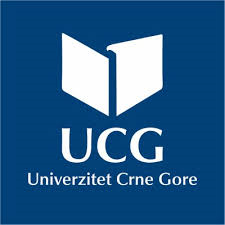
University of Montenegro (UoM) Focal point for KEY project is Veselin Mićanović who you may contact through: veselinm(at)ucg.ac.me Web site: www.ucg.ac.me

Institute for the Improvement of Education and Upbringing (ZUOV) Focal point for KEY project is Olivera Todorović who you may contact through: olivera.todorovic(at)zuov.gov.rs Web site: https://zuov.gov.rs/
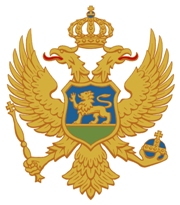
Bureau for Education Services of Montenegro (BES) Focal point for KEY project is Nataša Perić who you may contact through natasa.peric(at)zzs.gov.me Web site: www.zzs.gov.me
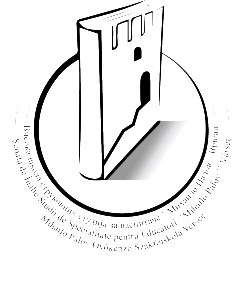
Preschool Teacher Training College ”Mihailo Palov” Vrsac (VSVS) Focal point for the project is director Jelena Prtljaga who you may contact through: vsvasdirektor(at)hemo.net Web site: www.uskolavrsac.edu.rs
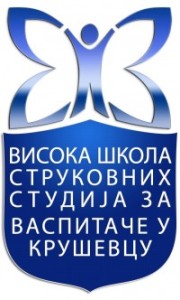
Preschool Teacher Education College Krusevac (VSVKS) Focal point for KEY project is director Zorica Duković who you may contact through: dukovic(at)vaspks.edu.rs Web site: www.vaspks.edu.rs

Preschool Teacher Education College - Sirmium, Sremska Mitrovica (VSSM) Focal point for KEY project is director Gordana Mijailović who you may contact through vs.gordana.mijailovic(at)gmail.com Web site: www.sm-vaspitac.edu.rs

College of Professional Studies for Preschool Teachers in Pirot (VSPI) Focal point for KEY project is Sanja Kovačević who you may contact through: melpomena27(at)hotmail.com Web site: https://pakadem.edu.rs

Birmingham City University Focal point for KEY project is Geraldine Lee-Treweek who you may contact through: Geraldine.lee-treweek(at)bcu.ac.uk Web site: www.bcu.ac.uk
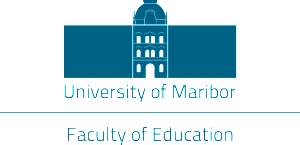
University in Maribor (UM), Slovenia Focal point for KEY project is Maja Hmelak who you may contact through:maja.hmelak(at)um.si Web site: www.um.si
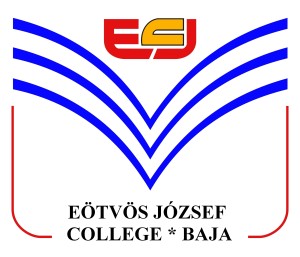
University in Baja (EJF), Hungary Focal point for KEY project is professor Adelheid Manz who you may contact through manzadelheid(at)gmail.com. Web site: www.ejf.hu

West University Timisoara Focal point for KEY project is Otilia Hedeșan who you may contact through otilia.hedesan(at)e-uvt.ro Web site: www.uvt.ro
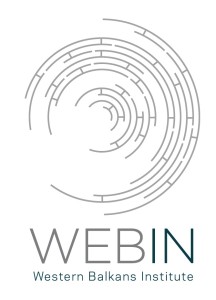
Western Balkans Institute (WEBIN) (before: Western Balkans Socio-Economic Center, WB-SEC) Focal point for KEY project is Jelena Nastić-Stojanović who you may contact through jelena.nastic(at)wb-institute.org. Web site: www.wb-institute.org

Assotiation of Teachers of Vojvodina (ATV) Focal point for KEY project is Radmila Petrović who you may contact through petrovicradmila57(at)yahoo.com Web site: http://uvv.rs/

Union of Associations of Preschool Teachers in Serbia (SAVEZ) Focal point for KEY project is Slađana Drašković who you may contact through draskovicsladjana(at)gmail.com Web site: www.savez-vaspitaca.org.rs

Public Preschool Institution "Ljubica Popović" (JPU) Focal point for KEY project is Slavica Luburić who you may contact through slavica(at)ljubicapopovic.com Web site: http://ljubicapopovic.me

Ris Raziskalno Izobrazevalno Sredisce Dvorec Rakican (RIS) Focal point for KEY project is Robert Celec who you may contact through robert.celec(at)ris-dr.si Web site: www.ris-dr.si